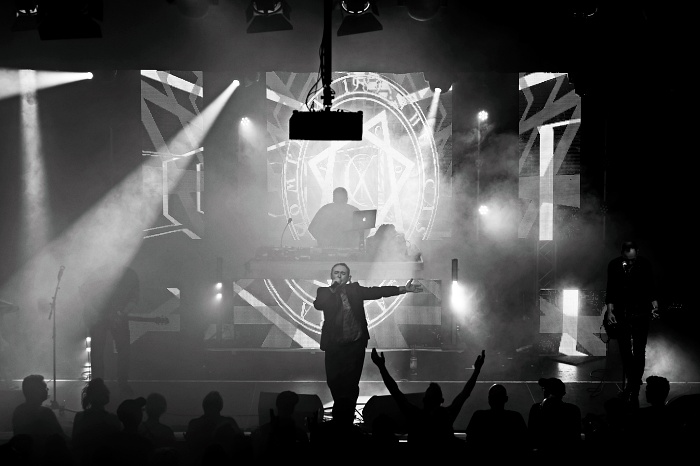Dark Mad Festival
The Cassandra Complex - The point where punk, gothic and industrial met | Interview
The Cassandra Complex is one of the bands that is considered a pillar to the electro-goth, industrial genre.
One of the bands that is a reference in electro, dark music is The Cassandra Complex. Starting back in mid 80's, The Cassandra Complex created a unique sound, using influences from various genres. The Cassandra Complex members are Rodney Orpheus, Andy Booth, Volker Zacharias, Axel Ermes.
Pics by Daniela Vorndran and Xavier Marquis
Following their love and the ambition to create something new in alternative music, they used their synths, their computers and their guitars, and create the music that themselves called punk with synthesizers. Their music was, later, labeled as electro gothic and punk industrial. One thing is certain. They were unique in every move and step they made and are still making. With 8 full-length albums, The Cassandra Complex have already left their mark in the history of dark alternative music, and in whatever music sub-genre label would someone put on CX's music. Along with their releases, they love to preform live in front of their fans around the world. This is why they were and still are on the road, the most of the time.
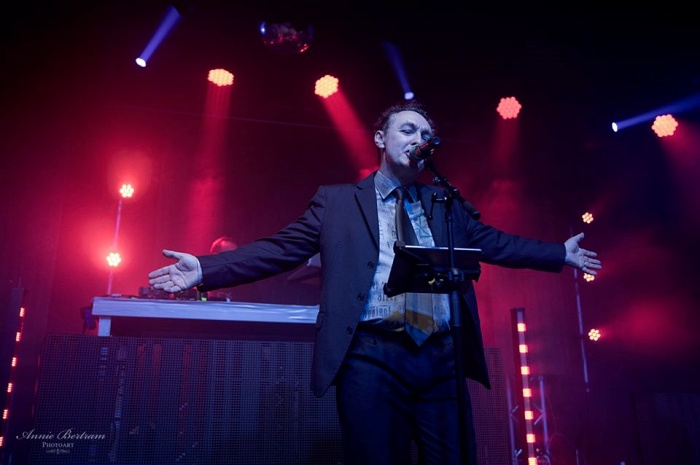
One of their next concerts is in Madrid, Spain where the will be in Dark Mad Festival, on October, 24th and 25th. Their shows and their music are definitely an experience which should not be missed by the goth rockers, post-punkers and dark wave lovers.
I had the pleasure to have a really interesting chat with one of the founding members and the voice of The Cassandra Complex, Mr. Rodney Orpheus. The man with such a deep and emotional voice.
ES: Hi Cassandra Complex and welcome in ElektroSpank. I am really glad to have you here. Well, a legendary band in gothic rock scene. Would you like to share some memories from the early days? When was the band formed? How did the founding members meet and how did you came up with Cassandra Complex as the band's name?
CX: We were formed when I moved from Northern Ireland to Leeds in the mid-80s. I met Paul Dillon at a nightclub when the DJ played a Die Krupps record and we were the only two people to dance to it. We started talking about our love for synthesisers and started the band the very next day. A few months later Andy Booth came to interview us for a Leeds fanzine and we liked him so much we asked him to join the band. 30 later, Andy is still in the band.
I met Volker and Axel when they asked me to produce a Girls Under Glass record for them. We got on so well that they ended up joining The Cassandra Complex as well as having their own band.
That lineup has been a stable one for many years now, and we plan to keep it that way.
ES: You are one of the pioneers of electro, gothic-industrial bands back in 80's - 90's. Can you give some highlights from the electro, dark/gothic scene back in those years?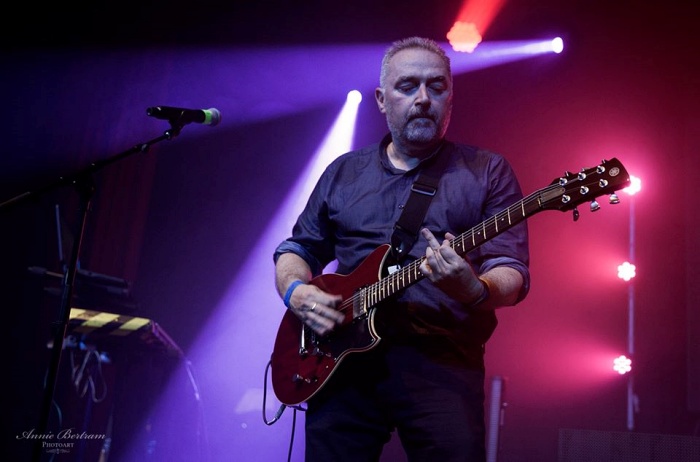 CX: The thing you need to understand is that there was no “scene” back in those years - just a bunch of relatively disconnected people all experimenting in trying to create a new type of music. Throbbing Gristle and Cabaret Voltaire had created most of the early industrial music, which we loved, but there was no such thing as a “gothic” scene. The Sisters of Mercy were really the first “gothic” band that any of us ever saw, and that scene kind of grew up around them, at least in the North of England. But neither the Sisters or us ever thought of ourselves as a “gothic” band, because that term didn’t really exist until afterwards.
CX: The thing you need to understand is that there was no “scene” back in those years - just a bunch of relatively disconnected people all experimenting in trying to create a new type of music. Throbbing Gristle and Cabaret Voltaire had created most of the early industrial music, which we loved, but there was no such thing as a “gothic” scene. The Sisters of Mercy were really the first “gothic” band that any of us ever saw, and that scene kind of grew up around them, at least in the North of England. But neither the Sisters or us ever thought of ourselves as a “gothic” band, because that term didn’t really exist until afterwards.
We just thought of ourselves as a punk band with synthesisers - what would now be called post-punk I guess, though that term didn’t exist then either.
ES: Can you remember the process of releasing your early-years albums back in late 80's and 90's and share with us the main difficulties and differences, that you see that exist, throughout these years?
CX: An important thing to understand is that we had no money, and back then there were no cheap computer recording systems. If you wanted to make a record, normally the only way to do that was to sign a contract with a record label and hope that they would loan you enough money to go into a big recording studio. Note: contrary to what most people think record companies don’t give you money - they just loan it to you, like a bank does, and then expect you to pay a huge amount back. We didn’t want to do that, so we got jobs, saved all our money, and bought cheap second-hand instruments and recording equipment from junk stores. So we built our own studio out of old equipment that other people didn’t want, and repurposed it to make our own sound.
We still do that even now :-)
ES: You have been on the road the most of the time. Starting from the first appearances before 30 years until recently when you continue to perform in some major events and festivals. How much would you say that the audience has changed throughout these years? Which is the feedback you are receiving nowadays?
CX: There’s no such thing as an “audience” as an abstract entity. It’s a whole load of individual people, each of whom has their own feelings and desires and needs. So when we play we don’t play to “the audience” - we play to every single individual person in the room. We try to reach out and make contact to them all. That might sound absurd, but it’s true.
So it’s impossible to talk about how “the audience” has changed. Everybody changes in their own way.
But as a data set, we can say that a large number of our audience have grown with us, so overall we have an older fanbase than we had when we started. However, I'm really happy that we also now have lots of younger people discovering us and coming along to our shows, it’s incredible after all this time.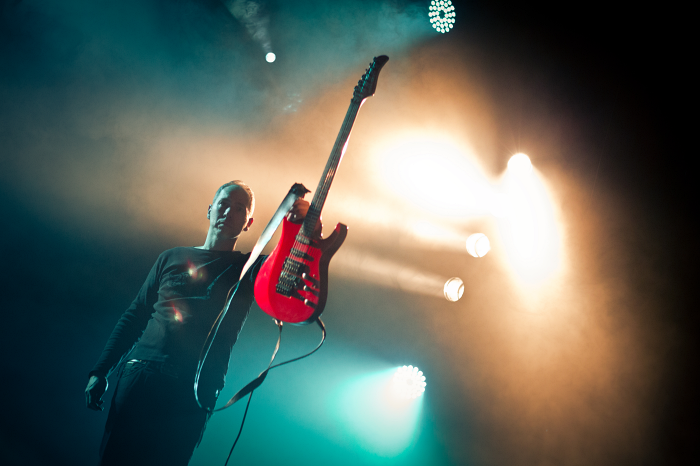
ES: Most of Cassandra Complex albums used to be arranged on a concept idea. Which were the facts that inspired you while writing an album?
CX: I think the first “concept” album we did was Cyberpunx where all of the songs told a complete science fiction story. That was an idea I really liked, and although the final product was great it didn’t reflect 100% what it should have been.
The War Against Sleep was an album were most of the songs were written during a very bad breakup with my girlfriend, so it kind of came out sounding like a concept album, even though it wasn’t :-)
Sex & Death was kind of a reaction to the more romantic side that we showed on The War Against Sleep - I wanted to make a record that was all of the raw, basic emotions that were not love. Sex, violence, hatred, etc.
ES: "Hello America" is an album that was your first release in US and contains early 12" EPs from 1985-1986, with the addition of some previously unreleased extra tracks. Can you tell us something about this album and its new version, which was released this year?
CX: Like I said earlier, when we started we had no money and made our early records with very limited access to good recording equipment. That’s not a problem for us now, so I wanted to reissue all of the old records but in remastered form so people could hear how they always were supposed to sound like. The versions on the Hello America 2019 album now sound like they always sounded in our heads.
ES: For many of Cassandra Complex's fans, Cyberpunx has a special place in their heart and mind, due to its specific concept, lyrics and sound. However, Cyberpunx was the reason for a huge argument with the record company, which caused many changes. Could you tell us the true story behind Cyberpunx and if there is any chance, to listen to its very first edition?
CX: The brief outline of the Cyberpunx story starts in the middle of a long involved resource war between the European Union and the Middle East nations. The protagonist of the story deserts from the army and comes back to Europe, where he falls in love with an Islamic girl who becomes pregnant, and they then escape the ravages of the war by going into space.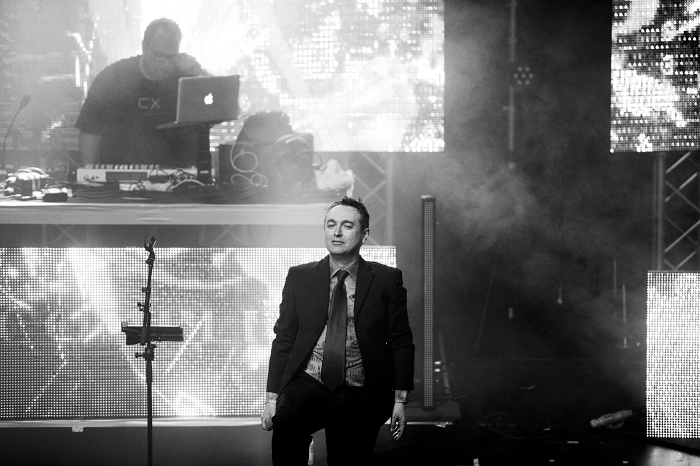 All of the songs on the Cyberpunx album, plus the songs on the Gunship and Finland EPs are part of that story, but the record company wouldn’t release them in the right order and format that I wanted, so it’s hard to figure out the story now - especially since the two EPs are no longer available!
All of the songs on the Cyberpunx album, plus the songs on the Gunship and Finland EPs are part of that story, but the record company wouldn’t release them in the right order and format that I wanted, so it’s hard to figure out the story now - especially since the two EPs are no longer available!
I would very much like to remaster those records and reissue them as one big rock opera, the way it was originally supposed to be.
ES: The Cassandra Complex Formed in Leeds, UK. A place that has given some major names in music history. Leeds is also the hometown of Fad Gadget and The Sisters of Mercy. Two names that has defined the industrial and gothic rock music genres. Would you say that The Cassandra Complex were influenced by those artists and their music in some way?
CX: Fad Gadget had left Leeds before I ever got there, so he wasn’t much of an influence on us. Andrew Eldritch from the Sisters of Mercy was one of the first people I became friends with when I moved to Leeds, and I saw all of their early concerts, so the Sisters were definitely an influence in the fact that we were travelling down the same pathway. We weren’t following them, more like running alongside them. Other Leeds bands that were an important influence were the Gang of Four, The Mekons and The Three Johns - they were hugely influential on the Leeds scene at that time.
ES: Are there any plans for a new album, with new material? There have been several references on a new Cassandra Complex album for some years now.
We have lots of new songs, and we are planning on releasing them next year. More info when that happens :-)
ES: Among the live appearances scheduled, you are going to perform at Dark Mad festival in October 2019. A new festival with an amazing line-up? How do you feel about that? Have you ever played in Spain before?
We have played in Spain a couple of times in the past, and it’s always been a unique experience. But we haven’t played there in a long time, so we are really looking forward to this show!
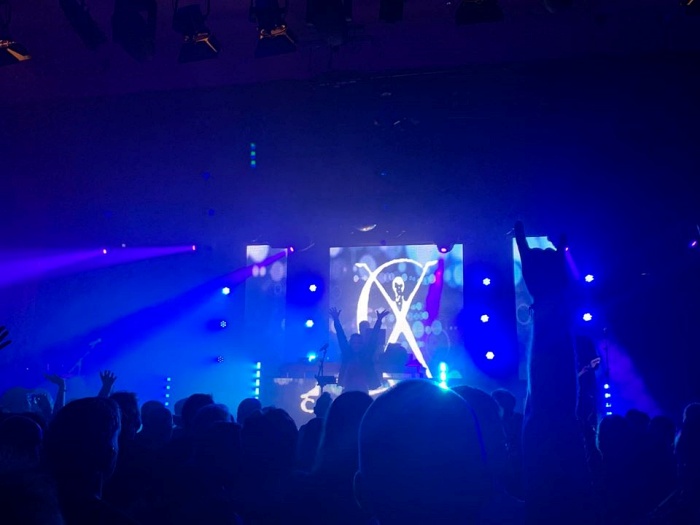
ES: What do you think about the music industry currently? Things have changed a lot and there are several ways for an artist to bring his/her music to the crowd. A number of digital platforms offer an alternative other than the record companies. On the other hand, there are several smallest, independent companies with great band rosters, releasing music in several formats, while, even cassettes, are being famous again. Can you share your thoughts with us?
Digital platforms are the best thing that has ever happened to music in that they massively increase people’s accessibility to music. Unfortunately, they don’t pay very well compared to physical formats, so although they make it easier for smaller bands to get noticed, they make it much harder to make a living.
If anyone is really interested in how the modern music industry works, they can read my degree dissertation here:
https://medium.com/@rodneyorpheus/the-digital-music-industry-an-overview-965915ae1fab
ES: This is a question I, often ask to bands with a long and great history like yours. In this long path in the music a number of events and facts that marked your course might happened. Could you share with us one of those you consider as a highlight or the best moment in your career as a musician and band and one of those that are not so good and you'd like to have not happened?
I honestly don’t know how to answer this.
ES: Any last words? Would you like to say something more to your Greek fans and our readers around the world?
Just - thank you for supporting and believing in us. You are what keeps us going.
Thank you very much for your time and this interview. I hope you will play in Greece some time, and I wish you all the best.
Info:


